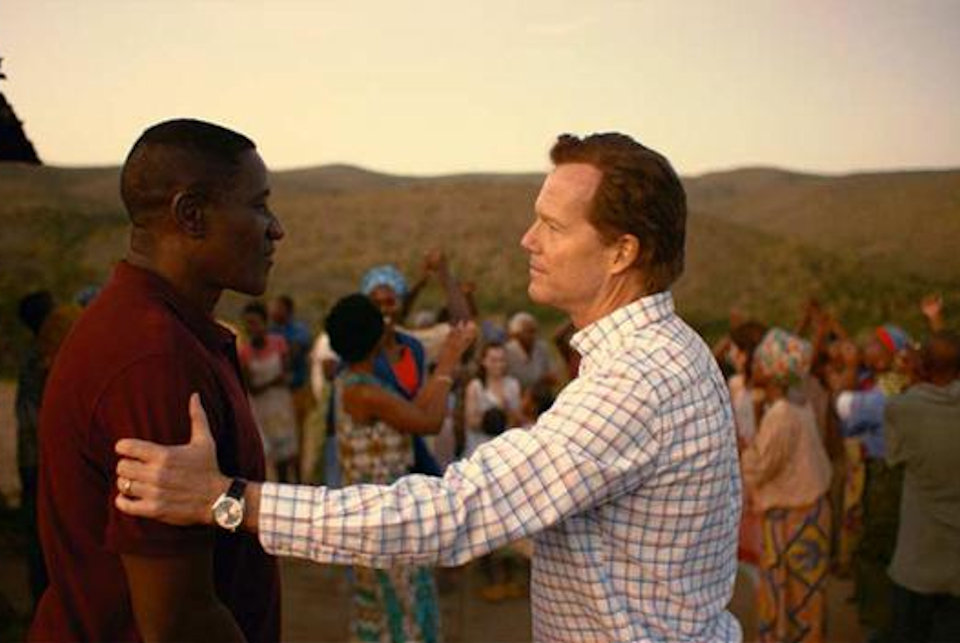A film relates the personal struggles of United Methodists in Tennessee that intertwined with a gruesome time in Rwandan history.
CHRISTOPHER FENOGLIO
United Methodist Communications
How far would you go to heal your broken family?
A United Methodist family must answer this question in the new movie “Beautifully Broken,” which opens this week in 647 theaters across the U.S.
The movie depicts the true events involving Randy Hartley and his family, members of Brentwood United Methodist Church in Brentwood, Tennessee, located just south of Nashville. Their personal struggles become intertwined with a gruesome past in Rwandan history and the current plights of refugees settling in America. Through it all, their faith is severely tested.
“Thank God we’ve got the church,” says Randy, “because even when we stumble, if you’ve got the church as a foundation, it helps you get back up and go again.”
In the film we meet three families connected by the horrific civil war in Rwanda, the east African country where the ruling Hutu government ordered the mass killing of the Tutsi population.
Through Randy’s church and a link with Compassion International, his family starts supporting Umuhoza, a young girl in Rwanda. Andrea, Randy’s daughter, starts writing letters to Umuhoza and the two become pen pals.
Umuhoza’s father is forced to join one of the militia gangs in order to keep his family safe, even though it could lead to prison time. Another family, led by William Mwizerwa, a Rwandan coffee executive, escapes a gang raid and flees the country to Kenya where they find shelter in a refugee camp. William then receives word that one of his extended family members was murdered in a raid. He also hears about a program that will help him start a new life for his family in America, if he is willing to leave his family behind until he can send for them.
William eventually settles in middle Tennessee where he begins the work of setting up Legacy Mission Village, an organization that helps other refugees resettle in America. During this process, William meets Randy and the two become friends.
But amidst his hard work and late hours to support his family, Randy does not realize that something traumatic has happened to Andrea. Facing a brokenness in his family, Randy turns to William for help. He wants to rekindle a spirit of love in his daughter and finds that William’s organization needs volunteers to interact with the young children of refugee families.
In the film we see how the three husbands rely heavily on the faith and strength of their three strong wives. In each of the parents we see a deep love for their children, whom John Wesley called “immortal spirits whom God hath, for a time, entrusted to your care.”
Still, there is brokenness in each family, which they have to address and find reconciliation. While their circumstances are different, but the way they dealt with their struggles can be an inspiration for other families.
“Yes, our family went through a certain crisis,” says Randy, “but you can almost ‘insert your problem here’ for other families. The answers are still the same. We’re all broken. How we’re broken is different, sometimes it’s bullying or abuse, it might be physical abuse, it might be drugs or alcohol, it doesn’t matter. ‘Insert your problem here’ – the pathway to be made whole again is the same path each way, you just come from different directions to the answer.”
For that recovery to begin, forgiveness must be involved. In John Wesley’s words, “God forgives us as we forgive others. So that if any malice or bitterness, if any taint of unkindness or anger remains, if we do not clearly, fully, and from the heart, forgive all men their trespasses, we far cut short the forgiveness of our own.”
“My daughter’s recovery didn’t start in Africa,” says Randy. “It began when Andrea started volunteering at Legacy Mission Village. She got to know some of the families, especially their children. More so than anything Mom or Dad could say, the children who couldn’t wait to see Andrea every day gave her a purpose and helped renew her self-worth. If you want to help others, you don’t have to go to Africa, you can just go across town.”
William’s forgiveness for the family member’s death takes place when he travels back to Rwanda (Randy wants Andrea to meet her pen pal in person). In his homeland, William faces the terrible truth about the genocide and feels the heavy burden of anger and despair on his spirit. But he is not there for revenge. Instead, he draws deep on his faith and forgives all those involved.
“We all go through pain and you will never forget it,” says Randy. “But if used correctly, your pain can become your passion and your fuel for moving forward. You don’t forget it, you use it. The Bible is full of stories saying the same thing. Every major character went through some painful episode and ultimately got over to the other side. Whether it’s Jacob, Moses, or others, I just think there’s something beautiful about all that.”
Last Updated on October 31, 2023

